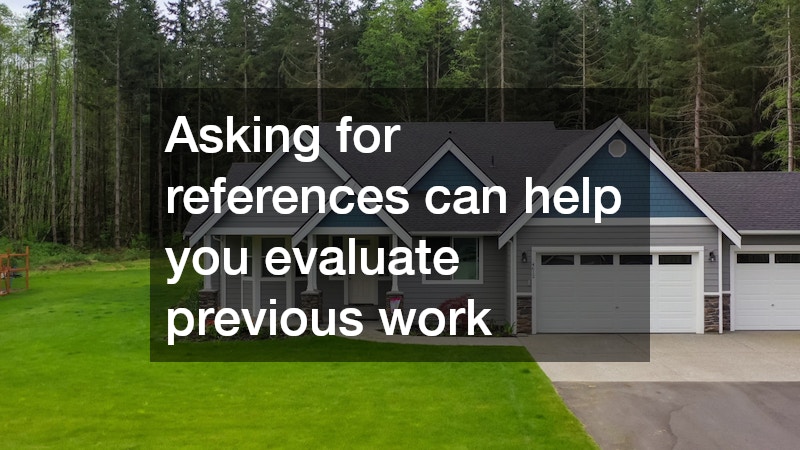Choosing the right roofer for your home is a crucial decision that can affect the safety and longevity of your roof. A new roof is not just an aesthetic improvement; it is a matter of protection against the elements that ensures the integrity of your home. This article outlines four essential questions to consider when hiring roofers, helping you make an informed choice about who to trust with this vital aspect of your property.
1. Are You Licensed and Insured?
Understanding the importance of hiring a licensed and insured roofing contractor is critical for your protection and the quality of work. Licensed roofers have met specific standards set by local or state authorities, which means they have the necessary training and skills to perform the job correctly.
Insured contractors protect both themselves and you by covering any accidents or damages that might occur during the roofing project.
Having the right insurance is not just a safety net for the contractor; it is a critical protection for homeowners as well. If a worker is injured on your property and the contractor does not have insurance, you could be held liable. Insured roofers care about compliance and quality standards within the industry.
Additionally, always request to see proof of the contractor’s license and insurance. Double-check the documents’ validity by contacting the appropriate state board or insurance company. This simple step can save you from unexpected risks and ensure that you’re working with a legitimate professional who stands by their service.
2. What’s Your Warranty Policy?
Inquiring about warranty details can give you insight into the quality of materials and workmanship offered by roofers. A strong warranty can reassure you that the contractor is confident in their work and is willing to take responsibility for any potential defects. Warranties can vary significantly, from coverage on the materials used to the workmanship itself, so it is crucial to be clear about what you are getting.
Typically, roofing materials come with a manufacturer’s warranty, which could cover defects and even certain types of weather damage. On the other hand, a workmanship warranty covers the installation process and ensures that if something goes wrong due to poor workmanship, the contractor will rectify the issue. Understanding these aspects can protect your investment in your home.
Be sure to read the fine print carefully. Warranties can have specific conditions that need to be adhered to, such as regular maintenance or inspections. Knowing what is required to keep the warranty valid can save you a lot of headaches down the road and ensure that you’re covered in the event of problems arising after the job is completed.
3. Can You Provide References or Testimonials?
Asking for references can help you evaluate previous work and overall customer satisfaction with the roofing contractor. Reputable roofers should be willing and able to provide you with a list of past clients who can speak to their performance and professionalism. Speaking directly to homeowners who have worked with the contractor can give you real insight into what to expect.
Look for feedback on various aspects of the contractor’s performance, including their punctuality, communication, quality of work, and overall service. Keep an eye out for patterns in the testimonials or references; if multiple customers highlight the same strengths or weaknesses, you’ll have a better idea of what your own experience might be like.
In addition to contacting references, consider looking for online reviews as well. Social media platforms and review sites can provide further context on the roofer’s reputation in the community. Positive testimonials combined with a strong set of references will give you additional confidence in your choice of roofing contractor.
4. What’s Your Payment Schedule?
Understanding the payment structure is essential to avoid potential financial pitfalls during the roofing project. A clear payment schedule can help you manage your budget effectively and ensure that you’re only paying for work that has been completed to your satisfaction. Different roofers have different payment methods, and how they structure their payments can reveal a lot about their business practices.
Typically, a fair arrangement may include a small down payment to secure the services, followed by scheduled payments as work progresses and phases are completed. This ensures that you have continuous oversight and approval of the work being done. Be cautious of contractors who demand a large upfront payment, as this can be a red flag.
Make sure to have everything documented in a contract, including the payment amounts, due dates, and the scope of work corresponding to each payment. This not only protects you as a homeowner but also provides the contractor with a clear guideline to ensure transparency throughout the job. Clarity in the payment schedule can prevent misunderstandings and lead to a smoother project overall.
By asking these critical questions, you can ensure that you select professional roofers who meet your needs, adhere to industry standards, and provide reliable service. A thorough vetting process will give you peace of mind and help you avoid the pitfalls of choosing a subpar contractor. Remember, your roof is not just a protective structure; it is an essential aspect of your home’s integrity, and making an informed choice is paramount.




